Results
-
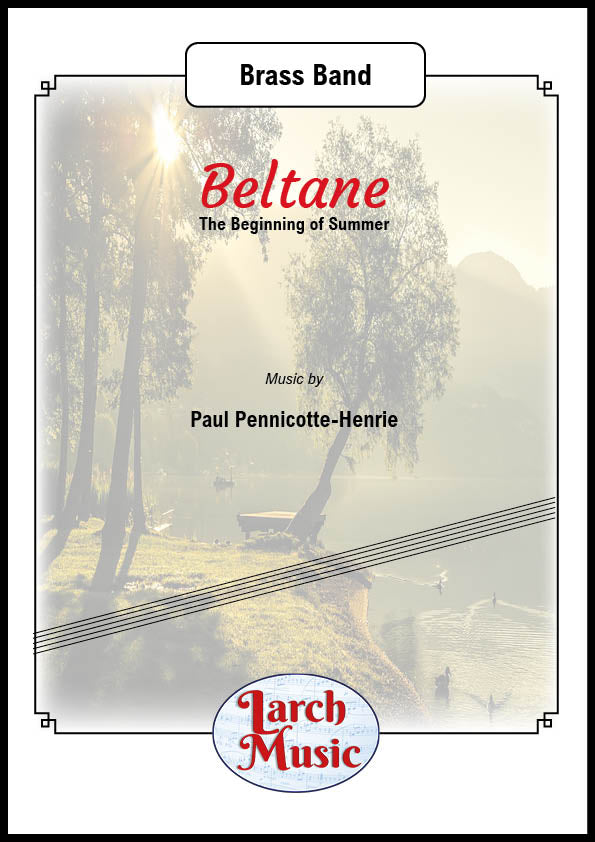 £35.00
£35.00Beltane (The Beginning of Summer) (Paul Pennicotte-Henrie) - Brass Band Sheet Music Full Score and Parts - LM268
COMPOSER: Paul Pennicotte-HenrieA delightful descriptive original composition from Paul Pennicotte-Henrie on the beginning of a British Summer.Three continuous movements in this 7 and a half minute piece although the movements could be played on their own.A great addition to your next concertSuitable Section 4 Upwards
In Stock: Estimated dispatch 3-5 working days
-
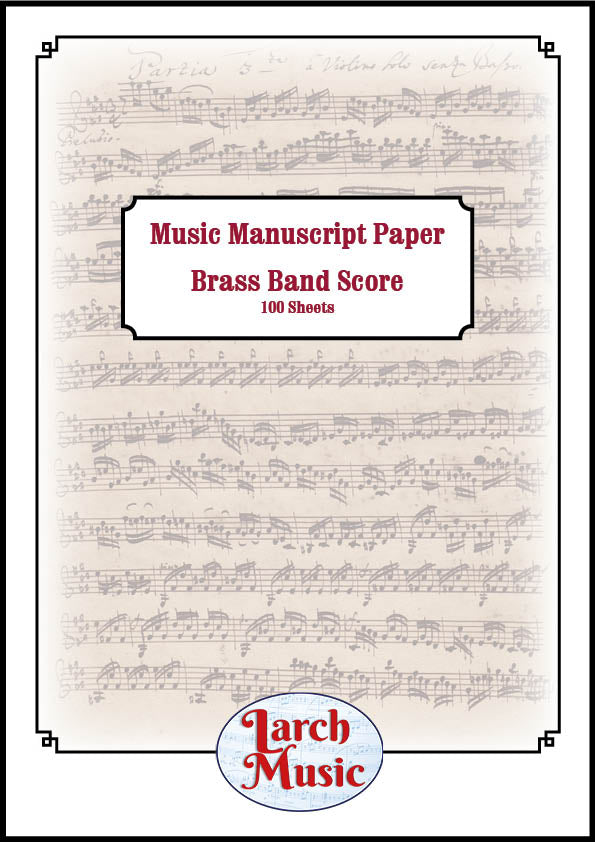 £14.95
£14.95Brass Band Manuscript Score Paper - A4 - 100 Sheets
A brass band manuscript paper scoring pad in A4 size.Write out your next masterpiece with our great quality paper.100 Sheets double sided 100gsm paper
In Stock: Estimated dispatch 3-5 working days
-
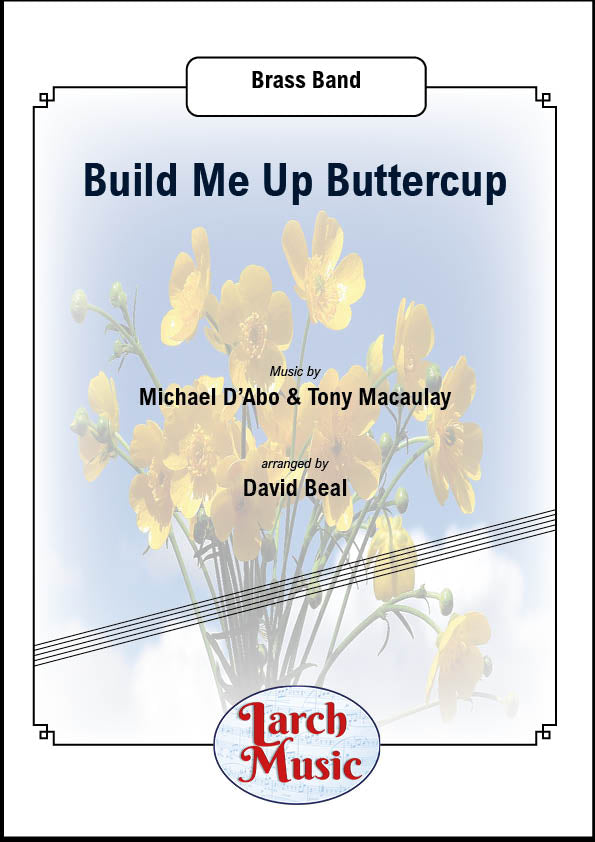 £21.50
£21.50Build Me Up Buttercup (The Foundations) - Brass Band Full Score & Parts Sheet Music - LM721
COMPOSER: Michael D'Abo & Tony MacaulayARRANGER: David BealBrass Band Full Score & Parts Sheet MusicUK SALES ONLYOriginally a hit for The Foundations back in 1968 with Colin Young singing lead vocals.But now available as a brass band arrangement ready for your next concert.A definite crowd pleaser and foot-tapper.LM721 - ISMN : 9790570007219
In Stock: Estimated dispatch 3-5 working days
-
 £31.00
£31.00Carol of The Bells - Brass Band - MM018 - Ukrainian Carol Arranged by Chip Davis
COMPOSER: Ukrainian Carol Arranged by Chip DavisARRANGER/ADAPTED : Tim MiddletonThis is a great Brass Band adaption of the "Mannheim Steamroller" version of "The Carol Of the Bells".A driving and rhythmical arrangement and a must-have for your next Christmas Concert!
In Stock: Estimated dispatch 3-5 working days
-
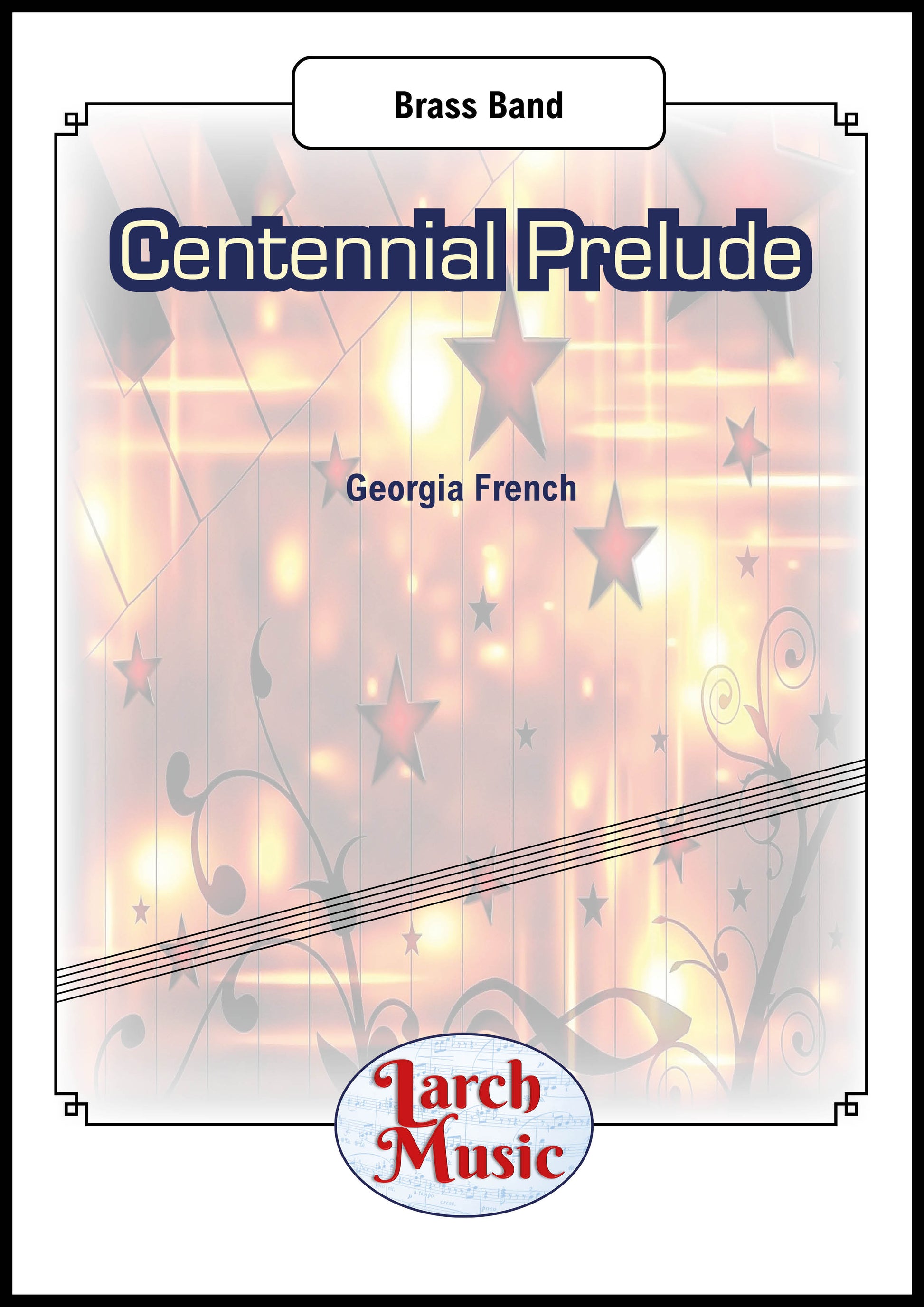 £30.00
£30.00Centennial Prelude (Georgia French) - Brass Band Sheet Music Full Score & Parts - LM675
COMPOSER: Georgia FrenchComposed for the ODBBA Centenary Concert and performed at the concert on 11th June 2023A brand new composition from the pen of Georgia French and makes a great opener for your next concert. A carillion of cornets open the piece leading to a mix of trombone and tenor horn providing the tune with a delightful overlay from solo cornet.Fanfares and effects appear from all sections leading a to a brilliant ff endingLM675 - ISMN - 9790570006892
In Stock: Estimated dispatch 3-5 working days
-
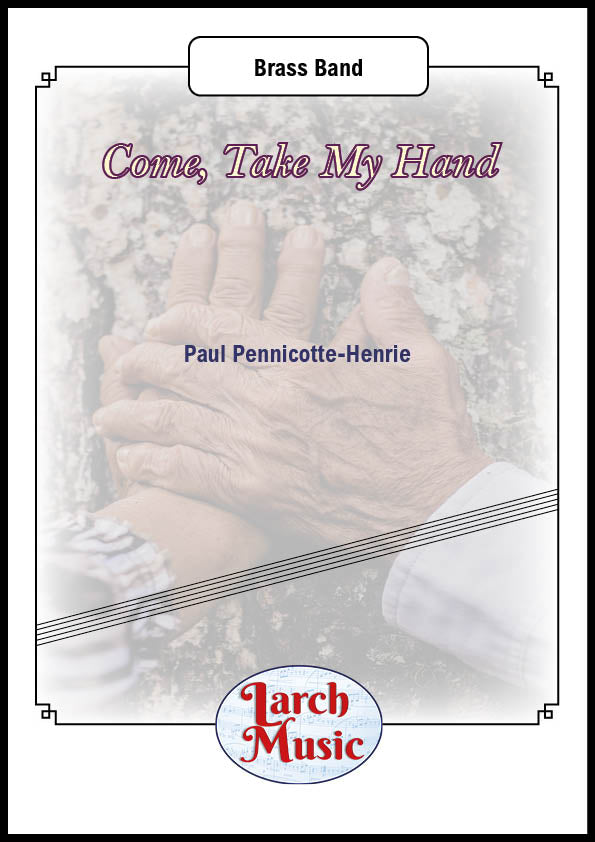 £30.00
£30.00Come, Take My Hand (Paul Pennicotte-Henrie) - Brass Band Sheet Music Full Score and Parts - LM509 - Paul Pennicotte-Henrie
COMPOSER: Paul Pennicotte-HenrieBeautiful harmonies take hold of the listener throughout this wonderful piece.A great addition to your next concertSuitable Section 4 Upwards
In Stock: Estimated dispatch 3-5 working days
-
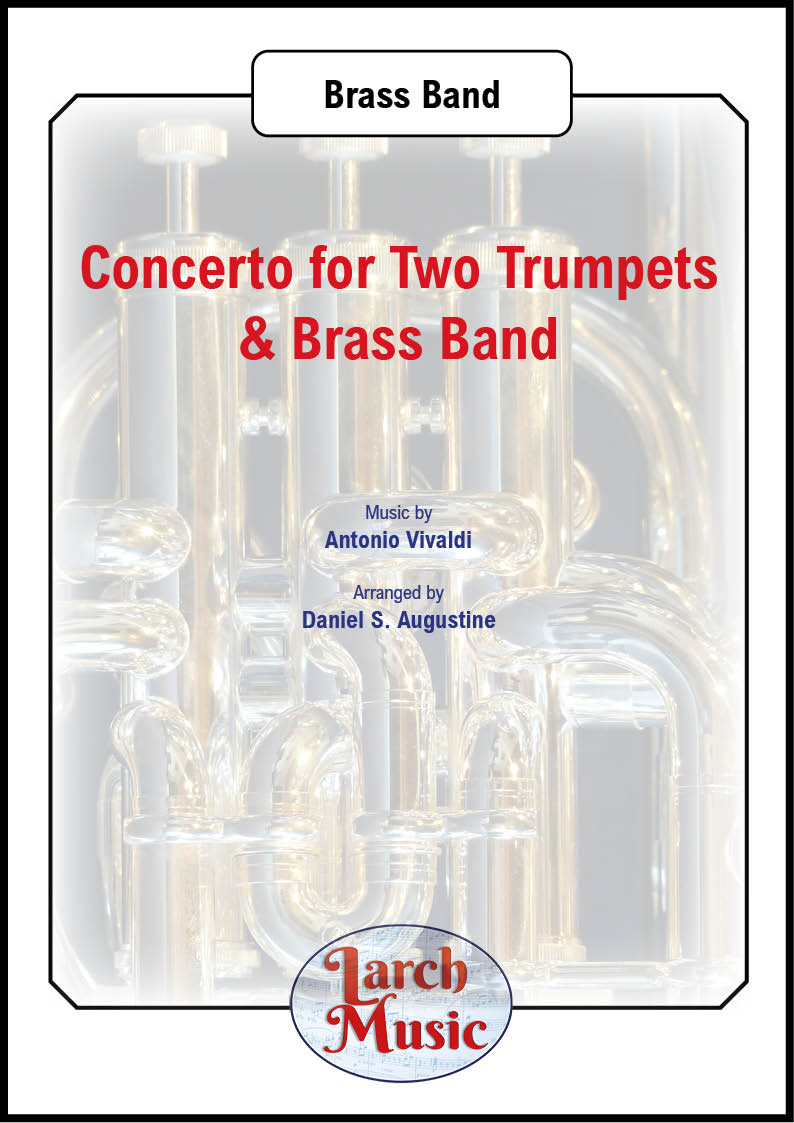 £30.00
£30.00Concerto for Two Trumpets & Brass Band - Bb or Eb Duet & Brass Band Sheet Music Full Score & Parts- LM601
COMPOSER: Antonio VivaldiTRANSCRIBED : Daniel S. AugustineThe great duet from Vivaldi is now available for two players with brass band accompanimentThe soloists can be two Eb soprano cornets, 2 Bb Cornets or one of each.A chance to let your soloists shine with authentic backing transcribed from Vivaldi original score.Definitely one for your next concert.Concerto for Two Trumpets in C Major, double concerto for trumpets and strings byAntonio Vivaldi, one of the few solo works of the early 1700s to feature brass instruments. It is the only such piece by Vivaldi.The rarity of Vivaldi'sConcerto for Two Trumpetsstems from the difficulties inherent in the Baroque trumpet. At the time, trumpets were natural, or valveless. The instrument's range was quite restricted, and much depended on the performer's lip control, as with the modern bugle.As with the great majority of Vivaldi's concertos, this one begins with a quick and sparkling movement to catch the attention of the audience and to showcase the bright tones of the solo trumpets. This is followed by a languid and very brief second movement, with fanfare-like passages from the soloists overlaying sustained string tones. For the final movement, Vivaldi returned to brilliant mode with quick energy and intricate passages for the soloists.
In Stock: Estimated dispatch 3-5 working days
-
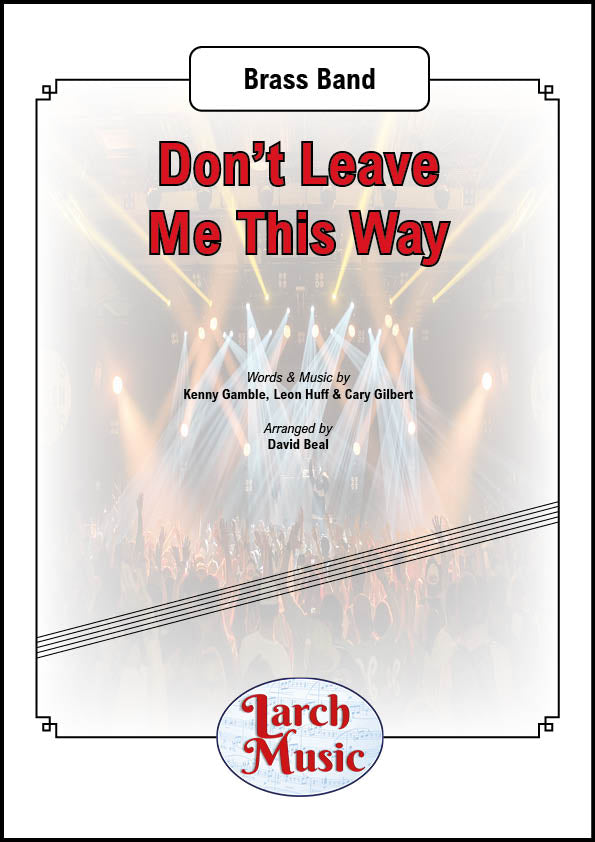 £25.00
£25.00Don't Leave Me This Way - Brass Band Sheet Music Full Score & Parts - LM941
WORDS & MUSIC : Kenneth Gamble, Leon Huff and Cary GilbertARRANGER: David Beal"Don't Leave Me This Way" is a song written byKenneth Gamble,Leon Huff, andCary Gilbert. It was originally released in 1975 byHarold Melvin & the Blue NotesfeaturingTeddy Pendergrass, an act signed to Gamble & Huff'sPhiladelphia Internationallabel. "Don't Leave Me This Way" was subsequently covered by American singerThelma Houstonin 1976 and British duothe Communardsin 1986, with both versions achieving commercial success.But now available, as recorded by the Communards, for brass band ready for your next concert.A definite crowd pleaser and foot-tapper.Sorry UK sales onlyLM941 - ISMN : 9790570009411
In Stock: Estimated dispatch 3-5 working days
-
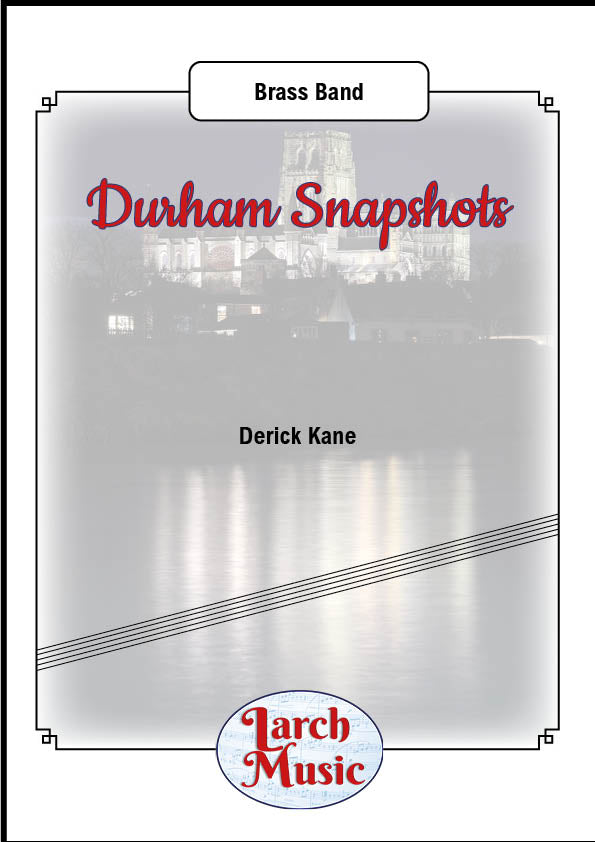 £65.00
£65.00Durham Snapshots - Brass Band - LM227
COMPOSER:Derick KaneDurham SnapshotsNew from the pen of renowned euphonium star, Derick Kane, an exciting composition written after a visit to the City of DurhamThis four movement work reflects the sights, sounds and history of the city of DurhamJ.B. Dykes hymn "St Cuthbert' is heard in movement 1 & reprised in the finale, as well as Ralph Vaughan Williams hymn 'Sine Nomine' in movement 31 - Cathedral2 - Riverside Walk 3 - Hymn to The Saints4 - CastleEnter the Cathedral and hear the glorious sounds of the open space and service.A Riverside Walk along the banks of the River Wear watching and listening to the wild life and running water.Hymn to The Saints with glorious harmonies soar through the air.And finally a trip to the castle where you can imagine battles and scourages taking place in this ancient building.One for your next concert to please the audience, and player, alike.
In Stock: Estimated dispatch 3-5 working days
-
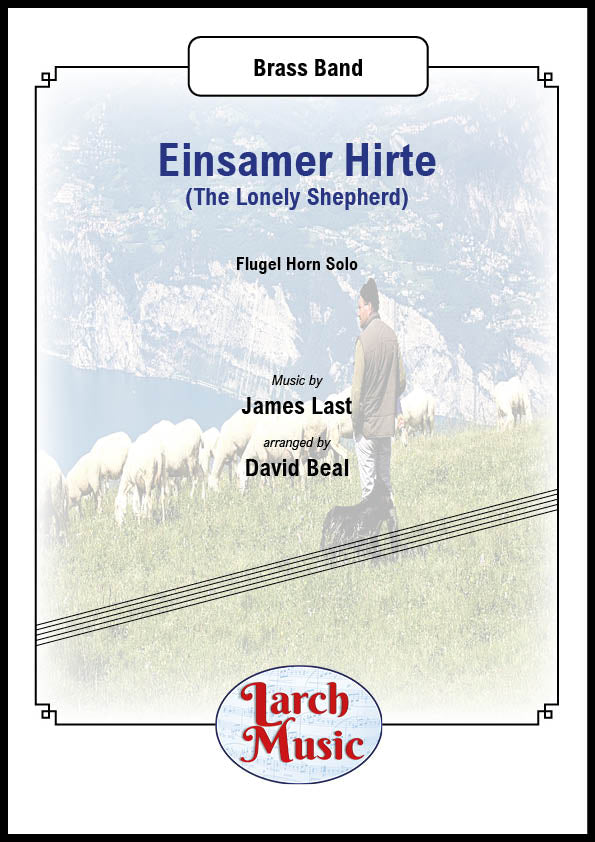 £21.50
£21.50Einsamer Hirte (The Lonely Shepherd) (James Last arr. by David Beal) - Flugel Horn & Brass Band Sheet Music Full Score and Parts - LM702
COMPOSER: James LastARRANGER: David BealA haunting solo from the pen of James LastOriginally composed for Georghe Zamfir on Panpipes but beautifully transcribed here for Flugel HornOne for the next concert to showcase your Flugel Horn playerOriginally, the title was planned for the albumFilmusik ohne Filmewhich was only to contain original compositions by James Last. This album was never released, so "The Lonely Shepherd " was published on Last's 1977 albumRussland Erinnerungen(Memories of Russia). In the same year, it was also released as a single, which reached 22nd on the music charts in Germany. With this recording, Gheorghe Zamfir, who had already published a number of records, succeeded in an international breakthrough. Among other things, he accompanied James Last in his 1978 tour."The Lonely Shepherd" has repeatedly been used as soundtrack. In 1979, it was used as the title theme for the six-part television seriesGolden Soak(Das Gold der Wuste) and again in 1984 in the Oscar-nominated animated short film "Paradise" In 2003, Quentin Tarantino used the recording as soundtrack in a scene and in the closing credits of his filmKill Bill: Volume 1.
In Stock: Estimated dispatch 3-5 working days










